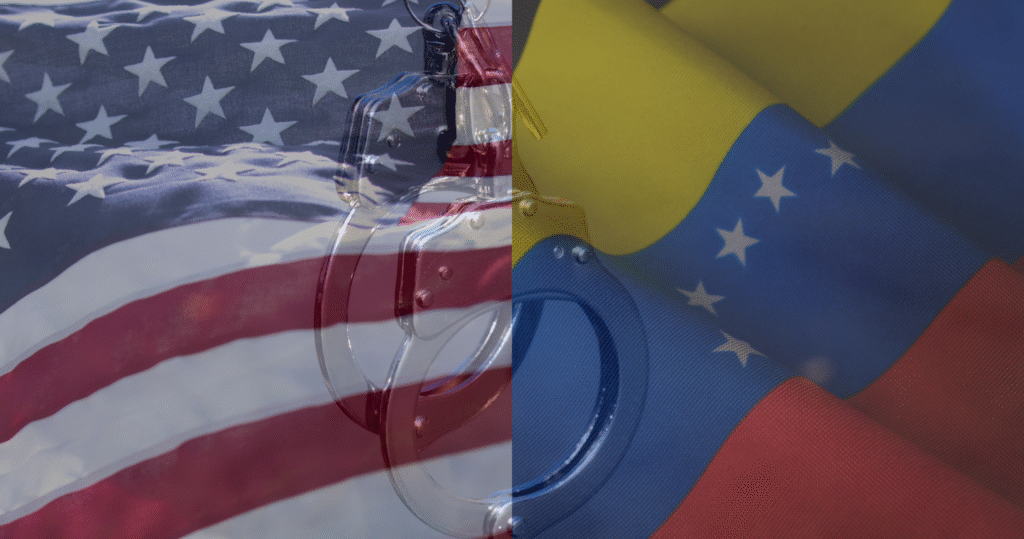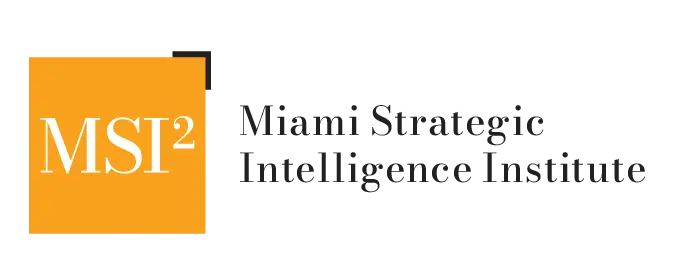30 May The ‘Propiedad’ Paradox: How a Venezuelan Hitman Infiltrated U.S. Borders—And What It Reveals About Policy Failure and Shadow Diplomacy
By,
Jesús Romero. Co-Founder & Senior Fellow, MSI²
Executive Summary: Anthony Fabian Marín La Torre, aka “Propiedad,” is a Venezuelan contract killer implicated in multiple homicides. After reportedly being arrested by Zulia State Police in September 2022, he surfaced in the United States just 16 days later—illegally crossing the border on September 26, 2022 (Friedman, 2025).
Despite his violent past, he was not only allowed to remain in the U.S.—he was granted a work permit, a Social Security number, and legal protections (ICE, 2025), all under the current administration’s permissive immigration framework.
Timeline of Events
- September 10, 2022: Venezuelan authorities reportedly arrested Anthony “Propiedad” during a criminal raid in Maracaibo.
- September 26, 2022: ICE confirms that Propiedad illegally entered the U.S. near San Luis, Arizona, likely as part of a family unit (Friedman, 2025).
- 2023–2024: Propiedad receives a work permit and Social Security number under Biden-era immigration policies (ICE, 2025).
- February 2025: Concerned citizens notify federal agents about Propiedad’s presence in Texas. ICE does not act immediately (Newsmax, 2025).
- May 2, 2025: Propiedad is finally arrested by ICE and the North Texas OCDETF. Venezuelan authorities want him for at least four contract killings.

Flight Over the Darien: Analyzing Propiedad’s Likely Escape Route
Given the short timeframe between his Venezuelan arrest and U.S. border entry (16 days) (Selee & Bolter, 2023), it is logistically implausible that he traveled on foot through Colombia, the Darien Gap, and Central America. Investigative assessment suggests:
- Propiedad likely flew from Venezuela to Mexico, either using falsified documents or trafficker assistance.
- From there, he likely approached the U.S. border with a family unit to leverage asylum loopholes.
This reveals a transnational smuggling network or state-sanctioned mechanism capable of rapidly inserting high-value criminals into the U.S. migration stream (National Center for Border Security and Immigration, 2024).
The Tip-Off That Was Ignored
In mid-February 2025, multiple citizen tips alerted federal agencies to Propiedad’s location (Newsmax, 2025). These were credible, detailed, and urgent. But he remained at large for another 10 weeks, receiving government benefits while wanted for homicide abroad (ICE, 2025). This exposes not just intelligence failure, but deliberate bureaucratic negligence enabled by current policy (U.S. Government Accountability Office, 2023).
Unvetted Entry: A Policy Failure
Propiedad’s entry and protected status were the predictable outcome of an immigration system overwhelmed by volume and stripped of meaningful enforcement. His case underscores:
- No functional criminal background checks from failed states like Venezuela.
- No systematic OSINT checks or even name flagging.
- Grants of work permits and benefits before risk vetting.
Shadow Cooperation: U.S.–Venezuela Law Enforcement Coordination
Despite the absence of formal diplomatic relations, the United States is quietly coordinating with the Venezuelan regime on selective law enforcement matters. In the case of Anthony “Propiedad” Marín La Torre, both Newsmax and ICE confirm that federal agents acted in part on information provided by Venezuelan authorities (Newsmax, 2025; ICE, 2025).
This reveals:
- Maduro’s regime selectively shares intelligence with U.S. agencies.
- Covert coordination continues in parallel to public hostility.
- U.S. cooperation with a corrupt regime risks legitimizing criminal enablers.
Anthony “Propiedad” may have been expelled or passed along, making him a pawn in a broader geopolitical and criminal intelligence game.
Final Note
America was warned. The Anthony Propiedad case is not simply about a fugitive. It’s about what happens when politics, corruption, and weak systems converge, allowing a killer to vanish into the U.S. interior while the government looks the other way. The border was breached. And justice, once again, came late.
References
Department of Homeland Security. (2023). Immigration enforcement actions: FY 2022. U.S. Immigration and Customs Enforcement. https://www.ice.gov/doclib/news/library/reports/annual-report/ero-fy22-report.pdf
Friedman, D. (2025, May 2). Venezuelan killer who crossed border illegally lived freely in U.S. for 18 months. New York Post. https://nypost.com/2025/05/02/us-news/accused-venezuelan-gang-killer-was-allowed-in-us-and-given-work-permit-by-biden-admin/
ICE. (2025, May 2). ICE arrest statement: Anthony Marín La Torre (“Propiedad”). [Press release]. U.S. Immigration and Customs Enforcement. https://www.ice.gov/news/releases/propiedad-arrest-statement
National Center for Border Security and Immigration. (2024). Criminal infiltration through asylum pipelines: Trends and vulnerabilities. University of Arizona. https://www.borders.arizona.edu/reports/asylum-criminal-infiltration
Newsmax. (2025, May 3). ICE confirms arrest of Venezuelan hitman ‘Propiedad’ in Texas after tip-off. Newsmax. https://www.newsmax.com/us/ice-propiedad-arrest/2025/05/03/id/0000000/
Selee, A., & Bolter, J. (2023). Managing migration through the Darién Gap: Policy gaps and humanitarian risks. Migration Policy Institute. https://www.migrationpolicy.org/research/darien-gap-migration-policy
U.S. Government Accountability Office. (2023). Southwest border: CBP and ICE face challenges identifying and processing high-risk migrants. https://www.gao.gov/products/gao-23-104859
The opinions expressed in this article are those of the author and do not necessarily reflect the views of the Miami Strategic Intelligence Institute (MSI²).
